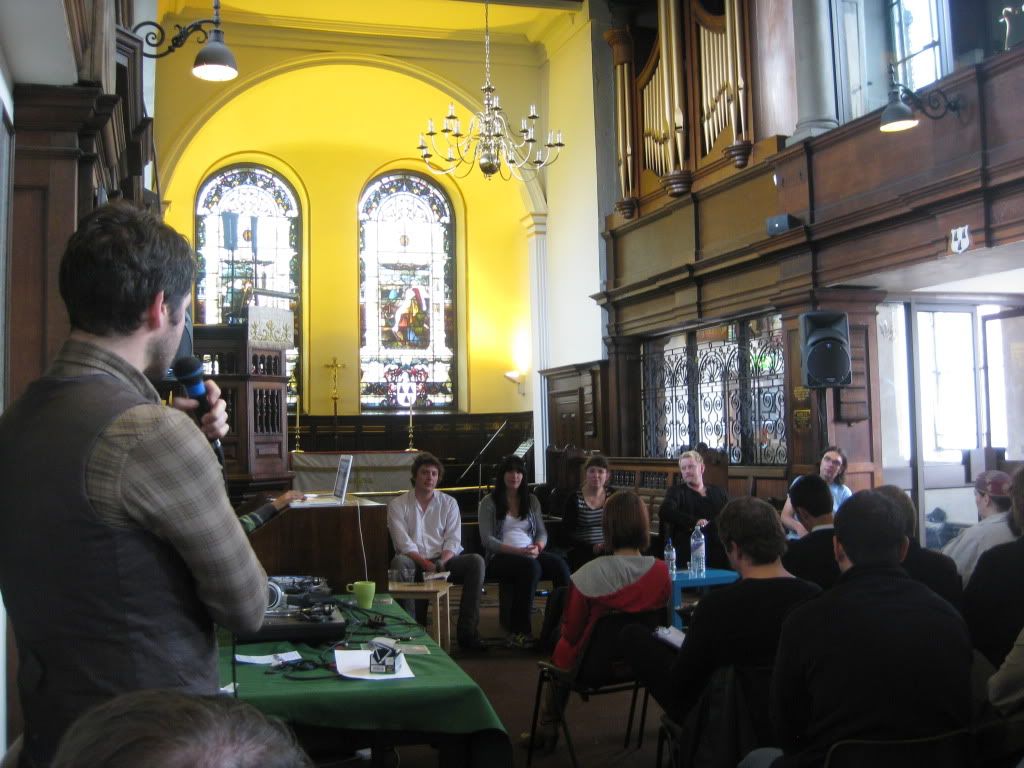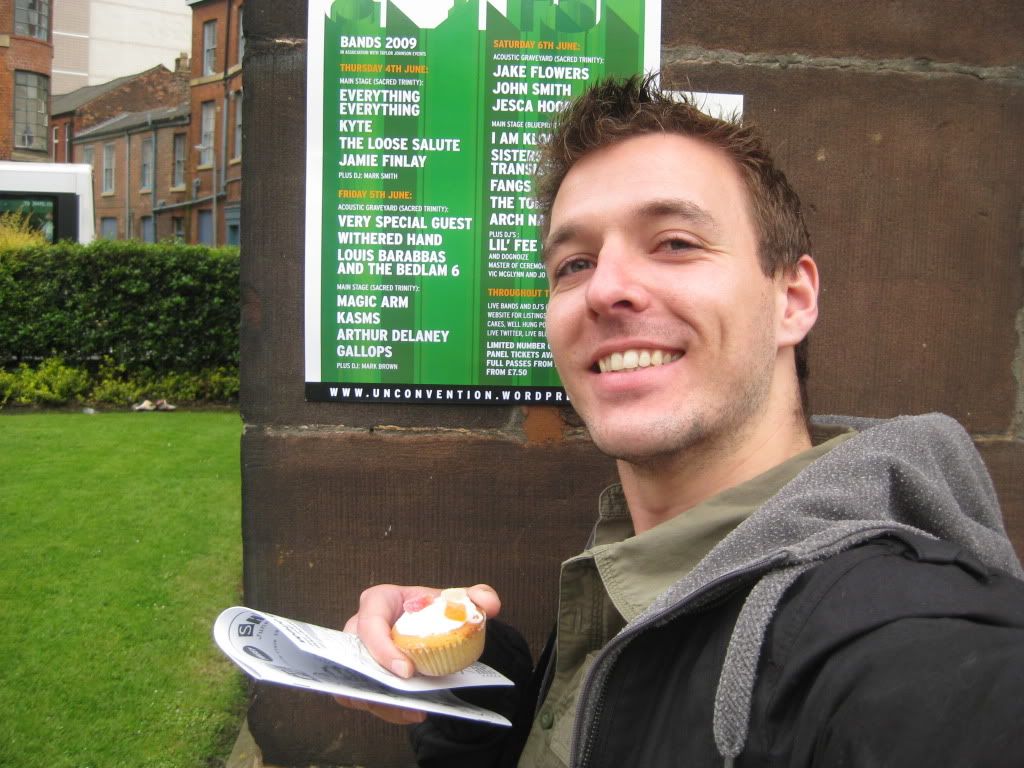
Saturday afternoon was an action-packed discussion focusing on small independent promoters, and touched on their relationships with bands and artists, as well as how they conduct their work in the ever-changing music business.
It was clear from the start that it is an entirely different market for small and large festivals; the smaller events offer their shindigs as a platform to meet people and network as well as an exposure to new art and music on many levels. Moderator Howard Monk, of live music promotion The Local, asks if the panel feel that they can deliver a lot of value for small amount of money, especially in relation to bigger festivals. The panel certainly agrees, and enjoy the fact that they can be a little more leftfield or off-the-wall by booking a bunch of artists yet to earn a nationwide audience but who may go on to play bigger stages.
Anna Moulson shares that The Great Escape like to try and support local Brighton acts, and that as Brighton has strong, healthy music scene then the Brighton people appreciate and support that fact. The idea of a local scene that fans embrace is an appealing one, but one that has certainly declined in recent decades, with the UK being a small island and people being able to travel greater distances to concerts with relative ease. I’d be keen to see if this may be a resurgence in certain cities and towns, as it certainly seems strong in Chicago, especially coming from my native but saturated London scene.
The struggle for small promoters is to offer quality artists reasonable fees and minimal demands. Having discussed several ways that less scrupulous promoters will avoid and even exploit such difficulties, my experience of both holding events and looking for gigs in London kicked in, and it occurred to me that promoters wanting credibility and longevity have to stick to their beliefs. This is true even during the tough times when “mr promoter down the road” is pulling in more people and possibly making more money (/breaking even). ‘Paying to play’ and ‘Battle of the Bands’ style events are sometimes a necessary evil for artists, but long-term relationships will not develop, and ultimately no-one becomes a fan of those event brands.
It is a tough call for artists to make when offered gigs with unfair pay and conditions, but one that should be given different conditions each time, re-evaluating their ‘position’ in the market and how much ‘clout’ they have, along with considering any positives or opportunities could come as a result. Secret Garden Party's Freddie Fellowes offered that boutique festivals can sell tickets based on the strength of their brand value, therefore becoming an attractive prospect for indie and new bands yet to develop a huge following. Not piling on the pressure is a great way to build a relationship with the artists.
Discussing which types of promoting events work, both panel and audience chipped in with stories of posters creating an appealing front, relevance of text messages and success in various online and printed listings. However, the split in the audience response regarding which marketing types attract our attention, say to me that you still have to cover all possible areas in any marketing plan. Supporting any online work with a good offline strategy, be that word of mouth or handing out flyers etc, is a crucial part of developing this all-round attack and improving your chances of reaching your target market. You know how a funny sticker in a venue bathroom attracts your attention and the next day you Google the band? Yep, that’s how it works. Vijay Nair shared that there is an increase in the use of mobile phone permission-based marketing India clubs. Open bluetooth tactics, plus direct visual aids for text services are becoming more popular, as they can then be targeted to specific areas, and several business are looking at how to pull further data from current databases.
We moved on to the subject of secondary ticketing, and whether the promoter panel were developing any new interesting strategies to prevent re-selling (and touting). Jay Taylor describes how he goes to eBay and report sellers charging ridiculous fees for tickets. He also earned applause by stating that he has approached ‘touts’ outside and confronted them during the act of selling, often asking the punter “How much did that tout charge you? 25? i’ll let you in for 20 and buy you a beer”. A great idea, obviously completely impractical, but amusing nonetheless.
On a final note, when asked what was the best ‘item’ for a band to send to various promoters, the panel was a little split, with some people getting so many emails and links that a CD and half decent press pack will gain more attention. Others have cluttered desks and hate the excessive paper and plastic that a physical demo causes, so a personalised email has more value. My final piece of advice here would be that when you approach press / radio / club contacts with your music, you should offer “Would you prefer a CD or a link to an mp3?”, removing the option of a “no, thank you”.

And so, with that information-overload finale, Unconvention Manchester came to an end for me. I had to hop on a train and miss the last few bands performing at the Blueprint Studios that evening, but managed to buy a cake or two on my way out. Similar to supporting new indie artists by buying their CDs and T-shirts, I firmly believe in supporting great events like this by purchasing the BBQ lunches, pies and cakes, alongside several pints of bitter, cider and (predictably), coffee the following morning(s). The team put on such a great event and I am already hoping to return next year. Here’s to Unconvention Manchester 2010 with pies, cakes, and a bright future to offer the independent music industry.
Lee Jarvis.

No comments:
Post a Comment